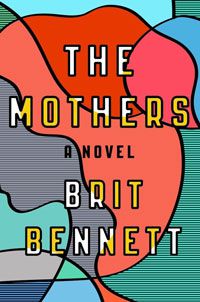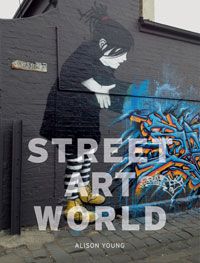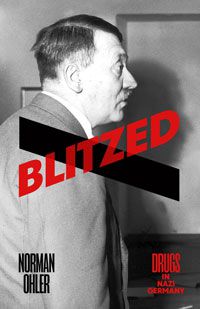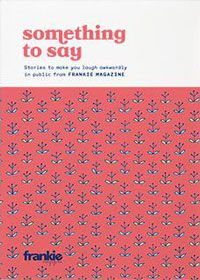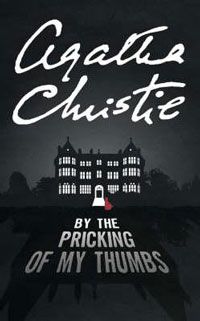Each week we bring you a sample of the books we’re reading, the films we’re watching, the television shows we’re hooked on or the music we’re loving.
Nina Kenwood is reading The Mothers by Brit Bennett
In late 2014, Brit Bennett’s essay I Don’t Know What To Do With Good White People went viral. It’s an important piece of writing about race that I’ve seen many people sharing again this week, in the wake of the US election. After her essay first took off, Bennett was approached by a publisher who thought she could be the next Ta-Nehisi Coates. Instead, Bennett told them she was a novelist, and her debut novel was signed up. That novel, The Mothers, has just been released and it’s one of the best books I’ve read this year. The story is set amongst a black community in a small town in California, and follows three characters – Nadia, Aubrey and Luke – from their late teens through to their late twenties. The novel begins with seventeen-year-old Nadia’s unexpected, unwanted pregnancy, and unfolds from there. This is a raw, honest and quietly heartbreaking book, filled with secrets and betrayals. It’s is an absolute must-read for anyone who enjoys quality American literature – especially those looking for fiction from diverse voices. I can’t recommend The Mothers highly enough – read it.
Chris Gordon is reading Street Art World by Alison Young
Alison Young has written a brilliant history book. Based on 20 years of research into the street art scene, Street Art World feels significant for the way it places the Melbourne experience into the global art landscape. The book includes interviews and snapshots of various players in the field, presenting a diverse range of voices that contribute to this transient art population.
This is a visually attractive book, with lots of pretty pictures throughout, but ultimately it’s a book about the effort and the expense of having art on our streets. Young demonstrates how organisations (such as alcohol companies, cafes, etc) are now able to use graffiti’s popularity for their own purposes, and suggests that the art only resonates if it remains uncharted and spontaneous. She asks what happens when an art movement becomes so successful that copycats abound and its real meaning begins to slide from view. Street Art World is a comprehensive study of an art movement that was never intended to last forever.
It seems timely to be reading this book as our local media highlights ‘the danger’ of letting our famous lanes be taken over by petty criminals, even as our City Council promotes ‘our colourful streets’. Perhaps the answer lies in providing more accommodation, more services and more kindness for all those who frequent our laneways.
Mark Rubbo is reading Blitzed: Drugs in Nazi Germany by Norman Ohler (translated by Shaun Whiteside)
I’m reading Norman Ohler’s Blitzed: Drugs in Nazi Germany and I have to say – it’s a pretty bizarre book. A German pharmaceutical company, Temmler, developed a methamphetamine tablet, called Pervitin. The medical corps of the Wehrmacht found that giving this tablet to the troops was a grand idea – it heightened their mood, made them less cautious and allowed them to stay awake for days on the end. Learning that the German Biltzkrieg was fuelled by what was essentially ‘ice’ perhaps goes some way to explaining the cruelty and callousness of the Nazis.
Amy Vuleta is reading to say Something to Say
I have just picked up a brand-new anthology that landed on the shelf this week: Something to Say is a collection of writing from from Frankie magazine over the past decade or so. Its subtitle is: ‘Stories to make you laugh awkwardly in public’. I’ve flicked through and recognised a few familiar names from the Australian literary world (Hi Benjamin Law! Hi Anna Krien! Hi Lorelei Vashti! Hi Justin Heazlewood!). I’ve LOL’d a fair bit already. The stories are well balanced – heavy and light, cultural studies and memoir, silly and serious, funny and sad.
I think this book is going to appeal to readers far beyond Frankie’s regular readership. With stories entitled ‘in defence of pigeons’, ‘kow to date a muslim’, ‘the opposite of bitchface’, ‘racism: how ironic’ and ‘can we fart now?’, there truly is something here for everyone. I am not a magazine reader myself – I get too distracted by all the colours and pictures and ads and don’t know what I’m supposed to look at or believe in anymore – but I’m hooked on this anthology, comprised of what I think is definitely the very best bits of the magazine, all hanging out together in a suitably good-looking book.
Fiona Hardy is rereading Agatha Christie
When my father died two weeks ago, I forgot what to do with myself. I couldn’t concentrate on work, or writing, or being a good mother; all I was good at, suddenly, was sleeping. Reading has saved me in the past, and so I thought: go buy yourself a book. Whatever you need. While it was almost enough just to go into work and see my colleagues, who told me they were sorry and wrapped their arms around me, I also bought H is for Hawk by Helen Macdonald, the winner of the Samuel Johnson Prize for Non-Fiction and the Costa Book of the Year. A prize-winning book about a woman who decides to train a goshawk to counteract the grief of losing her father seemed like the perfect idea. I took it home, wrapped myself up on the couch and started to read.
A few chapters in I wasn’t sure this was the book for me. Helen loves birds, as did her father, but that translates to keeping one chained to your arm and hooded to stop it from being scared, instead of just watching them fly free through the air. She talks about birds and historical falconers like T.H. White, but not about her father. I mentioned the book to a friend who’d already read it and she said she’d found it wonderful and sad like I was hoping. I kept going. A few chapters later and I was still not convinced. Even more colleagues and friends, whose taste in books usually matches my own, said they loved it. Eventually I told a different friend about my problems. She’d also lost her father, and said she didn’t like it either. Talking to her helped me realise that while I could usually love a book that took its time, it just wasn’t what I wanted this week. I simply wanted 300 pages of someone talking about my father and how broken my own heart was.
I put it back on my shelf, ready for another time, and instead took down the first Agatha Christie book I ever read: By the Pricking of my Thumbs. In the opening pages, ex-spy, now-a-bit-old, still-deliciously-clever Tuppence Beresford is returning from the funeral of her husband Tommy’s aunt. She changes from her mourning clothes into a cherry-red dress and says to him: ‘…the burial service is rather lovely. Makes you feel uplifted. Real grief is real. It makes you feel awful but it does something to you. I mean, it works it out like perspiration.’ My father loved crime books. I think it’s more fitting that now, while I can think of nothing but him, I read the story that started my love of them too.


